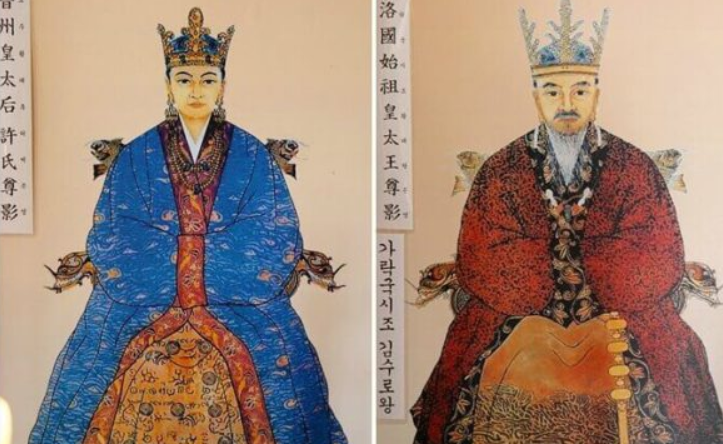Ayodhya’s Enduring Ties to Korean Queen Heo
For the consecration ceremony of the Ram Temple in Ayodhya on January 22nd, the temple Trust has invited representatives from over 50 nations, including Kim Chil-su from South Korea, who belongs to the descended royal lineage of Queen Heo (also known as Suriratna). The temple’s invitation symbolically honors the ancient connection between India and Korea said to have started from an Ayodhya princess.
About Queen Heo
As per a popular legend, Queen Heo was an Ayodhya princess who journeyed to Korea around 2,000 years ago (around 48 AD) and married King Kim Suro, founding the Karak dynasty there. As per legend, her parents received divine guidance in a dream to send her to Korea as Queen.
Revived Connections in Modern Era
In recent years, the ancient India-Korea connection via Queen Heo has gained prominence. In 2018, South Korea’s First Lady attended Diwali events in Ayodhya to highlight historical bonds.
Descendants Honor Shared Lineage
Millions of Koreans trace ancestry to the Karak clan founded by Queen Heo. In 2002, Karak clan members visited Ayodhya to commemorate Queen Heo at a memorial on the Saryu riverbank, wearing traditional attire and holding rituals. They honor their genetic ties to India through the royal match.
Ongoing Research Into the Legend
The Samguk Yusa chronicle from 13th century Korea is the earliest source documenting this legend. While concrete evidence remains lacking, recent genetic analyses have pointed to possibilities of Queen Heo’s Indian heritage. Both Indian and Korean scholars continue investigating its authenticity.
Inspiring Cultural Exchanges
The Ayodhya-Korea Queen Heo connection has spawned cultural tributes like a book on her life by an Indian diplomat translated into Korean. A Korean columnist recently wrote about his visit to her Gimhae tomb containing engravings and art from India, likely brought by the Queen.
State Support to Memorialize Queen Heo
The Uttar Pradesh government collaborated with Gimhae city to open a Queen Heo memorial park in Ayodhya in 2001 which Korean descendants of the Queen often visit. There are plans to further expand the memorial reaffirming the royal bond.
Boosting Commercial Links via Shared History
Besides culture, the Queen Heo legend also fortifies economic ties between India and Korea. It attracts Korean companies to invest in Uttar Pradesh to manufacture goods for the Indian market by leveraging the state’s labor and demand strengths thanks to a shared history.
Soft Power Diplomacy in Contemporary Geopolitics
Analysts note that in a post-pandemic landscape of intensifying Asian geopolitical realignments, the Queen Heo connection allowing India to skillfully engage East Asian countries like South Korea by invoking ancient people-to-people ties and shared Buddhist traditions is a shrewd soft power play.
Ayodhya’s Global Significance
As Ayodhya gains more attention as a pillar of India’s identity, the Queen Heo legend raises its international profile. The Korean participation in the 2023 Ram temple inauguration ceremonies signals Ayodhya’s rising global prominence via cultural diplomacy celebrating civilizational links.
Month: Current Affairs - January, 2024
Category: Art & Culture Current Affairs








